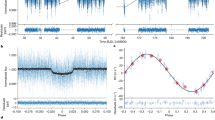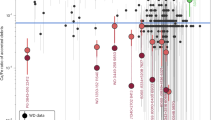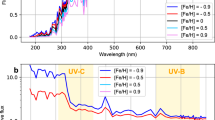Abstract
Recent determinations of the masses and radii of the planets may be interpreted as showing that the systems Earth–Moon–Mars and Mercury–Venus could have resulted from the break-up of two unstable planetary bodies of identical chemical composition. Thereby various features of planetary evolution would be elucidated.
This is a preview of subscription content, access via your institution
Access options
Subscribe to this journal
Receive 51 print issues and online access
$199.00 per year
only $3.90 per issue
Buy this article
- Purchase on Springer Link
- Instant access to full article PDF
Prices may be subject to local taxes which are calculated during checkout
Similar content being viewed by others
References
Lyttleton, R. A., Mon. Not. Roy. Astron. Soc., 121, 551 (1960); Mysteries of the Solar System (Clarendon Press, Oxford, 1968); Science J., 5, No. 5, 53 (May 1969).
Ash, M. E., Shapiro, I. I., and Smith, W. B., Astron. J., 72, 338 (1967).
Lyttleton, R. A., Mysteries of the Solar System, 94 (Clarendon Press, Oxford, 1968).
Allen, C. W., Astrophysical Quantities, second ed. (Athlone Press, London, 1963).
McCrea, W. H., Nature, 223, 253 (1969).
Roxburgh, I. W., Nature, 208, 65 (1965); Astrophys. J., 143, 111 (1966).
McCrea, W. H., and Williams, I. P., Proc. Roy. Soc., A, 287, 143 (1965).
Author information
Authors and Affiliations
Rights and permissions
About this article
Cite this article
McCREA, W. Densities of the Terrestrial Planets. Nature 224, 28–29 (1969). https://doi.org/10.1038/224028a0
Received:
Issue Date:
DOI: https://doi.org/10.1038/224028a0
This article is cited by
Comments
By submitting a comment you agree to abide by our Terms and Community Guidelines. If you find something abusive or that does not comply with our terms or guidelines please flag it as inappropriate.



